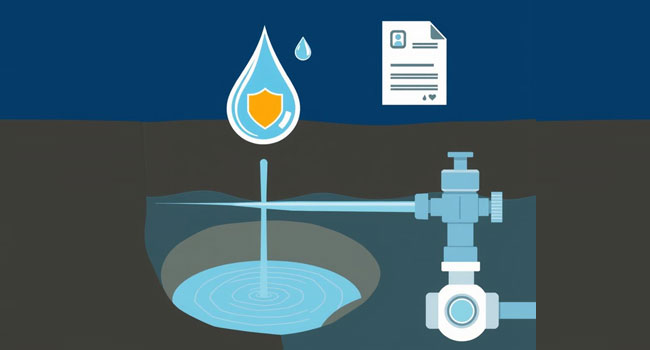- +91-8882964379
- info@certilize.com
UP Groundwater Department Authorization (UPGWDA) Service

Introduction
The UPGWDA is a necessary tool to control and monitor groundwater use in Uttar Pradesh. The UPGWDA ensures that there is sustainable use of groundwater resources. It prevents over-extraction, and encourages responsible water management practices.
For industries, agricultural units and commercial establishments, obtaining UPGWDA certification means they are permitted to legally extract groundwater in compliance with environmental and regulation laws.
What exactly is UPGWDA?
UPGWDA, a government organ universally known and praised among the people, is responsible for carrying out welfare programs which address problems like poverty or unemployment; moreover, UPGWDA formulates and carries out policies aimed at improving the welfare of disadvantaged communities ensuring that benefits from development reach right down to grass roots levels. By giving special support to promote sustainable models of development, UPGWDA makes every effort to build an even more fair and harmonious society in Uttar Pradesh; and thus, for India as a whole.
Why UPGWDA is required?
- Legal compliance: In Uttar Pradesh, all activities which extract ground water are required to comply with UPGWDA.
- Sustainability: It helps to conserve water.
- Avoid penalties: Companies will not be liable for fines if they use it correctly.
- Efficient operations: industrial and commercial life will certainly be distressed without water.
- Environmental responsibility: Industry should dispose of raw sewage and also recycle.
Eligibility for Application
- Industries engaged with production, cooling or processing that use source water. All should apply for UPGWDA authorization.
- Commercial establishments as various as shopping malls, office buildings and hotels.
- Agricultural units with borewells or tube wells.
- Educational institutions, offices and residential complexes which have a borewell (or tube well) in any form.
- Projects that discharge treated water into natural bodies of water given the technologies they use are eligible one has attained positions between two levels of engineering.
Documentation Required
- Application Form: Completed and signed
- Land Documents: Legal proof of ownership or lease agreement to be verified with material evidence.
- Groundwater Usage Details: Daily extraction and consumption statistics are to be filed.
- Flow Diagram: Details of water extraction and usage procedures are to be provided.
- Water Quality Report: Analysis Report of the water to be extracted in two examples to show that results conform to law.
- Hydrogeological Report: Prepare this report for you if you’re involved in large-scale surface water extraction
- Consent to establish operate From the Uttar Pradesh Pollution Control Board (UPPCB).
- Declaration Form: Regarding adherence to groundwater conservation laws point by point.
- Power of Attorney: Power of Attorney authorizing a representative to act for submission and receipt of desired information.
- Site Layout Plan: Showing the water extraction and discharge points.
Step-by-step process
- Preparation: Gather all the necessary documents and their details about water usage.
- Application Submission: Submit applications via offline or online through the UPGWDA for local service or its offices where they specialize in all matters concerned with ground water.
- Fee Payment: Submit to account for government fees.
- Site Inspection: Officials may visit the site for an on-spot inspection and verification.
- Approval: Upon successful verification UPGWDA authorization is granted. The UPGWDA authorization process usually takes from 30 to 60 days. This period is dependent upon both the comprehensiveness and feasibity of your applications schedule.
Fees and costs
- Government Fees: Based on the extent of ground water extraction.
- Professional fees: Guidance for application preparation and processing.
- Miscellaneous charges: Inspection, preparation of a hydrogeological report and other immediate costs.
Penalties for non-compliance
- Fines: Monetary penalties for the illegal exploitation of ground water.
- Operating Restrictions: Withdrawal or cessation of field wells.
- Legal Consequences: Enforcement measures to be taken for severe infringements.
- Environmental Restoration Costs: Additional penalties must be paid for environmental problems which have resulted from non-compliance with these rules.
Frequently Asked Questions
-
Who needs to apply for UPGWDA authorization?
Any entity extracting groundwater for industrial, commercial, agricultural, or residential purposes must apply to UPGWDA for authorization.
-
What is the life period of UPGWDA authorizations?
It is valid for 1-3 years usually, depend on usage type and category.
-
Can the authorization be renewed?
Yes, an application for a new permit must be made in time before expiry.
-
Does a hydrogeological report have to be included with every application?
For large scale groundwater extraction projects, it is essential.
-
What happens if I don’t get UPGWDA authorization?
Noncompliance may lead to fines, lawsuits against the violator and suspension of work.
-
How does the UPGWDA supervise groundwater extraction?
There are water meters in place and inspections made by UPGWDA staff on an occasional basis.
-
What are the charges for getting a UPGWDA license?
The specific fee charged is contingent upon the amount of ground water that is extracted and the category of establishment you have.
-
Does UPGWDA control agricultural production?
Yes, for large-scale agricultural facilities with bore wells or suction pumps.
-
Can I modify my UPGWDA permit?
Yes, it is permissible for alterations that pertains to changes of water needs of operation pattern.
-
How long does it take to get UPGWDA authorization?
Usually it takes about 30-60 days, depending on documents and- investment.
Use our professional services to make your UPGWDA authorization process easy and smooth. Please Contact us Today!
